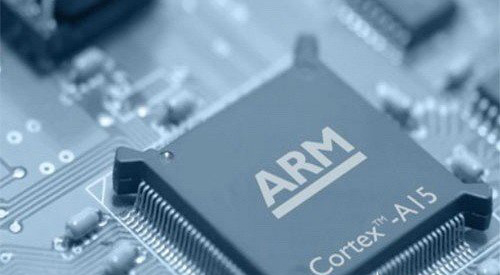News
- Company news
Company news
- Industry news
Industry news
Low power advantage of ARM chip is disappearing
With the delayed release of processor products, the hope for the successful application of arm server is increasingly slim, said a senior management of Dell.
"Based on the arm processor under test, Dell will provide its arm server products," said Forrest norrod, general manager of Dell servers. However, as its competitors chip companies catch up, the main advantage of ARM processor with relatively low power consumption is rapidly disappearing, which means that users have little reason to invest in other architectures and not continue to apply x86 architecture. "

To be frank, I think the development progress of the whole system is a little slower than previously expected. "
All kinds of companies have expressed their interest in the production of server products based on the processor of arm architecture, which means not only the production of components themselves, but also the authorization of their design to manufacturers. But up to now, the official commercial version of arm's 64 bit server processor has not been published.
At present, ARM processor is mainly used in digital products such as smart phones and tablets, but the industry regards it as a potential energy-efficient alternative product of Intel x86 server chip, and x86 server plays a leading role in today's data center. Arm server is considered for network hosting and cloud computing installation applications. However, chip manufacturers such as applied micro and AMD have postponed the release of chip products based on ARM architecture, which has a chain effect on the release date of their related server products.
Dell, on the one hand, sells x86 servers; on the other hand, it provides a prototype arm server for benchmark testing and application development. HP has announced plans to use ARM processor in its moonshot "intensive" server products. Currently, x86 chips are used in the server products, and the company has not officially announced the final release time of its arm version server products.
Intel and even AMD are expanding their low-power server processor product lines, norrod added, adding that these same products will ultimately seriously affect the market space of arm server products.
The opportunity for arm servers is "much smaller than before.".
Whether enterprise users are willing to invest in an infrastructure to maintain x86 and arm server architectures is an open question. Most businesses have x86 servers. In order to apply the server products based on ARM architecture, enterprise users will not only invest in new servers and components, but also migrate applications to the new architecture. If the total cost including holding cost and capital expenditure is not too much overspend, then arm server still has its living space.
In fact, there has been a license problem around the application of arm server for a long time, and with many enterprises having to pay more and more for the software they use, this problem is even more prominent. In large-scale server installation, arm server needs more low-power kernel to handle even lightweight tasks, such as search and social network posting.
At present, most of the software development is aimed at x86 architecture chip. However, arm is promoting the development of relevant software ecosystem through industry alliances such as linaro and companies such as red hat, so as to expand the application range of its processor products.
However, there is nothing they can do about the fact that the group of arm server chip manufacturers is gradually shrinking.
Calxeda, a pioneer of arm servers at the end of last year, and NVIDIA, the company that started this year, all dropped their server chip plans. Samsung also gave up the development of arm server chip, which was disclosed on semiaccurate in June.
The early applications of arm server products are mostly concentrated in the extremely limited range of large-scale server buyers, and x86 chip manufacturers are also actively striving for these customers.
But when Dell feels that this is a viable business opportunity, it will offer arm server products. "We will continue to pay close attention to it. We are paying attention to the interests of end users. We will continue to maintain close ties with the arm ecosystem and focus on signals from end-user applications, "norrod said.

